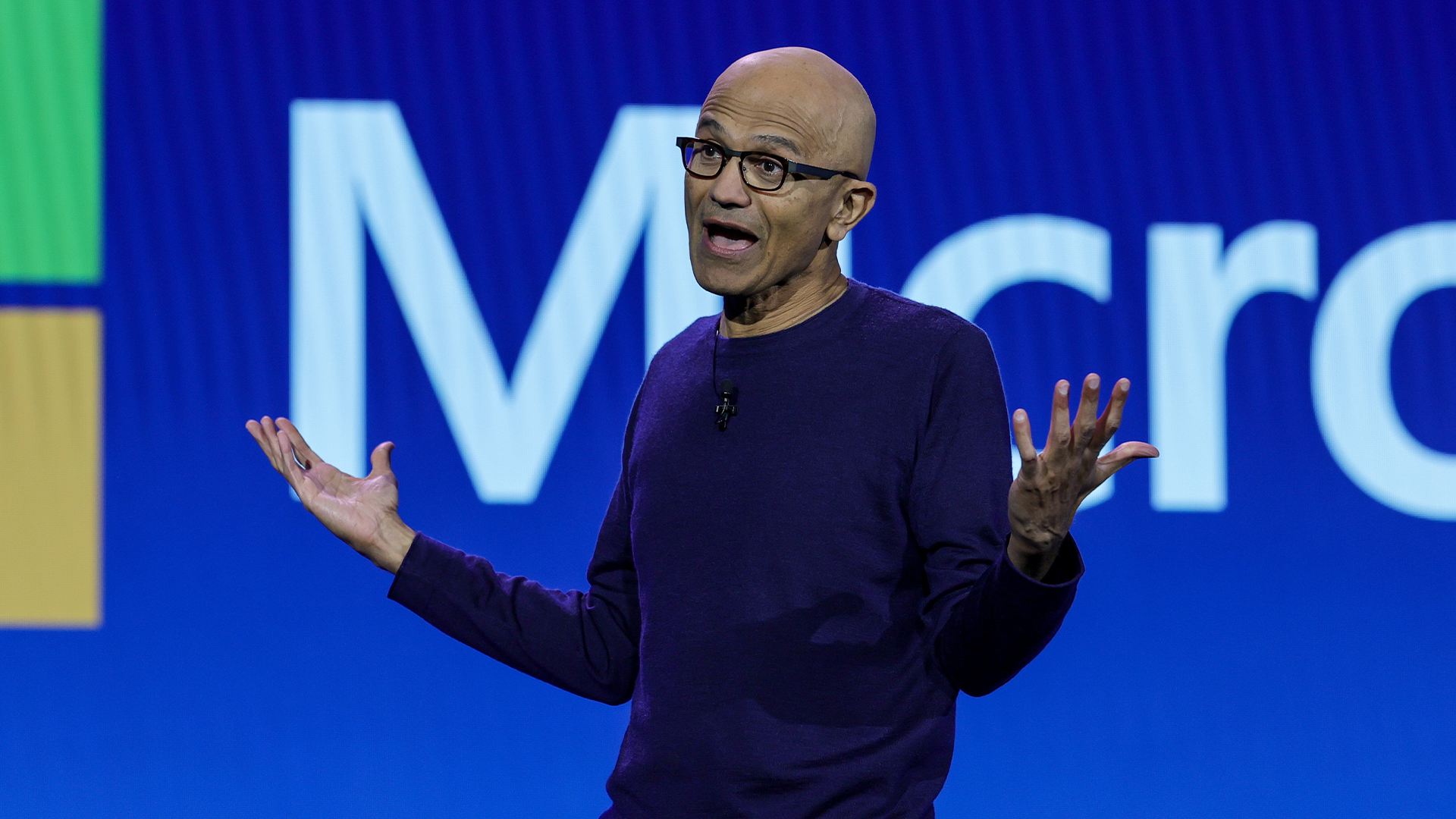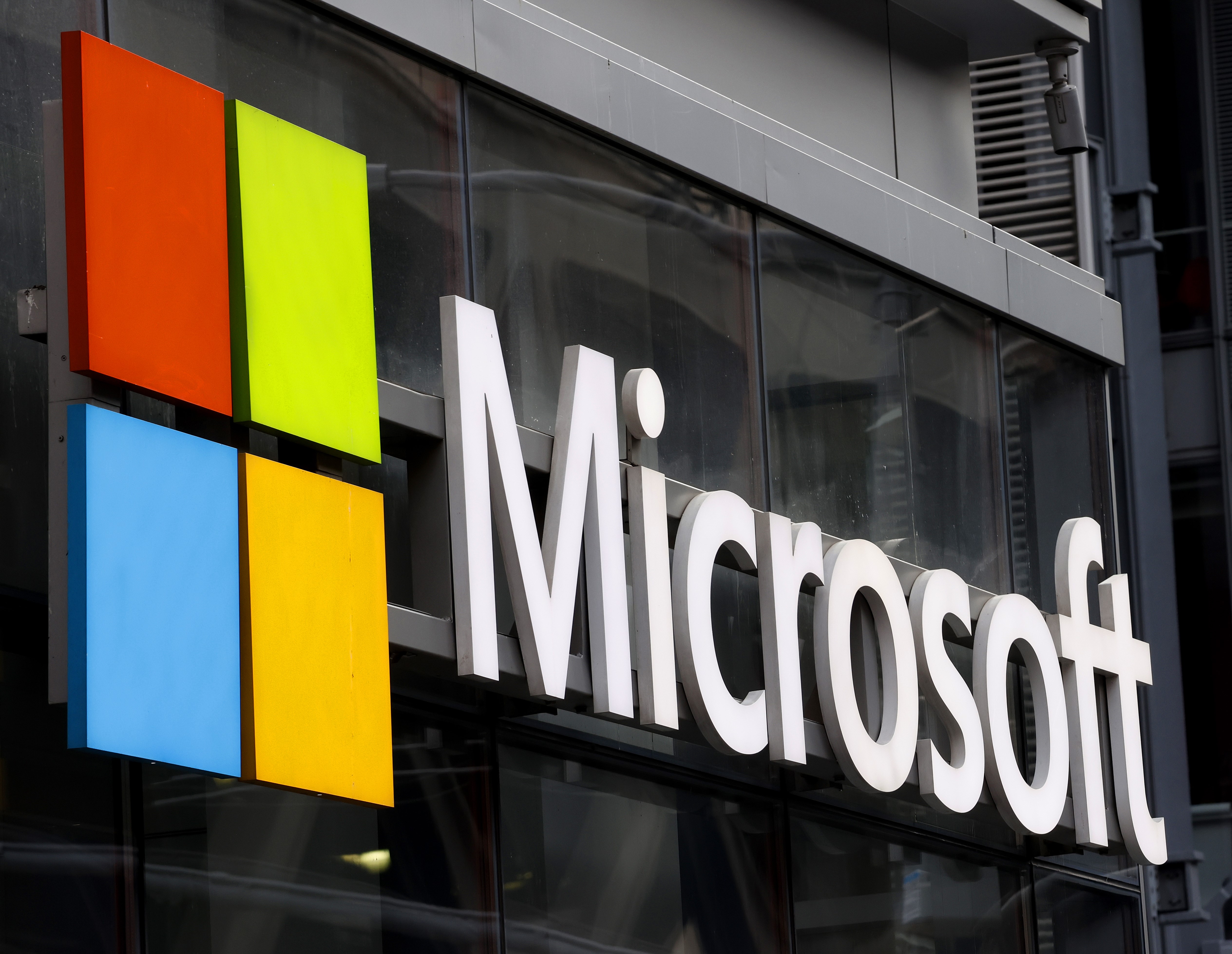Microsoft signals end to free AI offerings with new Microsoft 365 Copilot prices
No free lunch for firms adopting AI, as Microsoft lays out its plans to corner the AI subscriptions market


Sign up today and you will receive a free copy of our Future Focus 2025 report - the leading guidance on AI, cybersecurity and other IT challenges as per 700+ senior executives
You are now subscribed
Your newsletter sign-up was successful
Microsoft has announced pricing for its AI productivity suite 365 Copilot, in a long-expected move that sheds more light on the firm’s long-term plan for AI software revenue.
The AI-enabled 365 Copilot will soon be made available to Microsoft 365 E3, E5, Business Standard, and Business Premium customers at $30 per user, per month.
Through the product, firms can leverage Microsoft’s generative AI to produce complex documents, summarize meetings, and sort emails.
It also announced Bing Chat Enterprise, the corporate equivalent to its popular Bing AI chat tool, which can draw on internet data and input to produce text, analysis, and comparisons.
Microsoft has promised that no data passed through Bing Chat Enterprise will be retained, none will be used for model training purposes, and that it will have no access to it.
Microsoft 365 E3, E5, Business Standard, and Business Premium customers will receive Bing Chat Enterprise at no additional cost, while others will be able to pay for the product on its own for $5 per user, per month.
At $30 per user, per month, Microsoft could raise significant funds from 365 Copilot.
Sign up today and you will receive a free copy of our Future Focus 2025 report - the leading guidance on AI, cybersecurity and other IT challenges as per 700+ senior executives
Although the firm has not released exact figures for the 365 Copilot user base, its Paid Early Access Program has more than 600 enterprise customers including corporations such as KPMG which boasts a global workforce of more than 200,000.
RELATED RESOURCE

End to end 3D design and styling
Learn how to create a realistic-looking 3D scene, end to end.
It clearly hopes that its AI capabilities will be deemed attractive enough, and convenient enough, for existing 365 customers while also standing out as competitively priced in comparison to other AI services.
Providing AI for free has long been understood as something of a bubble. OpenAI CEO Sam Altman has previously described his firm’s computing costs as “eye-watering” and Google’s 365 Copilot alternative, Duet AI, is expected to fall behind a paid tier down the line,
The household name in AI launched the $20-per-month ChatGPT Plus in February, amid growing speculation that the company was failing to generate enough revenue to maintain its services, though later undercut itself with its ChatGPT API pricing.
Microsoft’s slow AI dominance
Microsoft sees huge potential in its AI offerings, which in the past year have become core propositions across its product ecosystem.
The firm has spread generative AI to all areas of its business suites under the banner ‘Copilot’, from the productivity and employee experience gains of 365 Copilot and Copilot for Viva to groundbreaking coding and cyber security capabilities via Copilot X and Security Copilot.
AI has even driven record growth in Bing, Microsoft’s long-suffering search engine that has long been used primarily for searching the term ‘Google’. In March, Bing exceeded 100 million daily users for the first time, in a surge that Microsoft linked to its new integrated AI.
It is clear that Microsoft sees AI as a new frontier for revenue, and participation in the market as an imperative.
Microsoft’s own 2023 Work Trend Index indicated that the majority of workers care more about AI’s benefits than their job security in the face of the technology, indicating a strong shift to corporate AI adoption in the pipeline.
Beyond the immediate pros and cons of Microsoft’s own AI products, the company has demonstrated that it is unwilling to yield any ground when it comes to the AI market.
The firm has invested up to $10 billion in OpenAI, the firm behind popular AI chatbot ChatGPT as well as GPT-4, one of the world’s leading large language models (LLMs). It reportedly provided much of the supercomputer infrastructure necessary to train GPT-4 and uses the model as the partial backbone for many of its AI products.
Users can still get a strong taste of OpenAI’s capabilities through its free ChatGPT services, much in the same way that those with a Microsoft account can use Bing Chat for free so long as they don’t mind their inputs being used for training purposes.
This is an example of the breadth of Microsoft’s involvement throughout the AI market, having provided generative AI at cost for months in the belief that it could recoup costs through corporate demand down the line.
Through its Azure AI Platform, the firm has also provided cloud customers with a wide range of LLMs and other pre-trained models, from closed-source models like GPT-4 to Meta’s freely-available Llama 2.
Copilot’s price of entry could quickly stack up for larger customers. But it’s clear that this is just one profitable thread in a far larger AI tapestry to which Microsoft is dedicated.

Rory Bathgate is Features and Multimedia Editor at ITPro, overseeing all in-depth content and case studies. He can also be found co-hosting the ITPro Podcast with Jane McCallion, swapping a keyboard for a microphone to discuss the latest learnings with thought leaders from across the tech sector.
In his free time, Rory enjoys photography, video editing, and good science fiction. After graduating from the University of Kent with a BA in English and American Literature, Rory undertook an MA in Eighteenth-Century Studies at King’s College London. He joined ITPro in 2022 as a graduate, following four years in student journalism. You can contact Rory at rory.bathgate@futurenet.com or on LinkedIn.
-
 ITPro Best of Show NAB 2026 awards now open for entries
ITPro Best of Show NAB 2026 awards now open for entriesThe awards are a fantastic opportunity for companies to stand out at one of the industry's most attended shows
-
 Mistral CEO Arthur Mensch thinks 50% of SaaS solutions could be supplanted by AI
Mistral CEO Arthur Mensch thinks 50% of SaaS solutions could be supplanted by AINews Mensch’s comments come amidst rising concerns about the impact of AI on traditional software
-
 Microsoft promises more AI spending despite cloud cost stumble
Microsoft promises more AI spending despite cloud cost stumbleNews Microsoft recorded revenue and earnings growth in its latest quarterly results, but higher than expected costs in cloud and AI raised investor concerns.
-
 Insight strikes new Microsoft agreement to drive cloud growth
Insight strikes new Microsoft agreement to drive cloud growthNews The new agreement builds on the organizations' existing AI-focused relationship
-
 Bing’s problem isn’t its lack of appeal… it’s Google’s aggressive market tactics
Bing’s problem isn’t its lack of appeal… it’s Google’s aggressive market tacticsOpinion The search engine claims it’s been hamstrung by Google’s dominance in the search space. Does it have a point?
-
 Inside the Make-A-Wish Foundation ‘lift and shift’ cloud transformation
Inside the Make-A-Wish Foundation ‘lift and shift’ cloud transformationCase Study The charity wrestled with budgetary challenges to overhaul its legacy IT by tapping into Microsoft Azure
-
 How to start page numbering from a specific page in Microsoft Word
How to start page numbering from a specific page in Microsoft WordTutorials Learn how to start page numbering from a specific page in Microsoft Word and give your document a professional edge